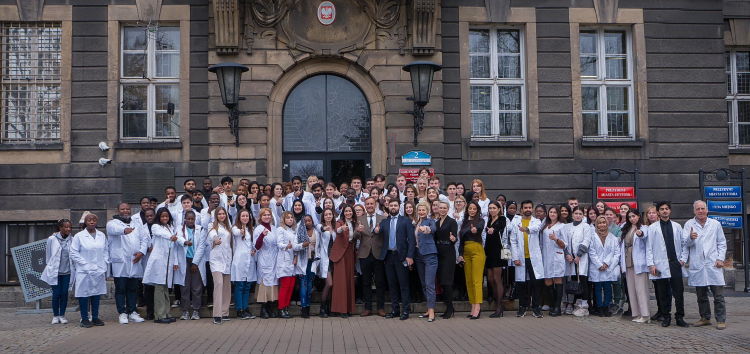Despite Russia’s invasion, which has decimated thousands of educational institutions, Ukraine’s schools and universities remain steadfast in their commitment to educating the nation. One university, in particular, is standing up to the attack on education. Kyiv Medical University (KMU) is adapting its medical curriculum and even growing with the support of the EBRD.
In 1992, as Ukraine was transitioning to an independent state, a team of enthusiasts led by Oleksandr Pokanevych’s father took a bold step, founding KMU, a private graduate and post-graduate medical university. Their mission was clear: to train the next generation of doctors, offering a curriculum that spanned a wide range of medical specialties, from dentistry to traditional medicine.
“In hindsight, it was brave of my father to start a private medical university during those times,” reflects Oleksandr, who later took over the family business. “We had to stand out in the market and offer something different to the public universities.”
As time went on, KMU launched an English language programme, attracting international students and gaining recognition on the global stage. However, its resilience would be put to the ultimate test when Russia’s invasion of Ukraine began in February 2022.
“The war changed everything. It became hard for everyone – managing logistics and emotions,” Oleksandr recalls. “But we remained steadfast in our commitment to our community of students and professors.”
Navigating the crisis with adaptability
In the first few months of the war, Alexander and his team focused their efforts on providing safety for their community. KMU’s campuses were swiftly transformed into bomb shelters, and students and staff were given full access to their facilities – among the few to have hot running water, electricity and wi-fi.
As the conflict evolved, however, with no clear end in sight, KMU recognised an urgent need to continue providing access to education and training opportunities, safeguarding not only its students’ futures, but also its teachers’ livelihoods. Adapting to crisis became a matter of survival.
Drawing on technology adopted during the Covid-19 pandemic, KMU transitioned to online learning, supporting students who had by then moved to safer areas outside Ukraine. However, it quickly realised the importance of maintaining hands-on clinical training for its students.
With part of its team remaining in Ukraine and others relocating abroad, KMU’s leadership had to make prompt decisions, focusing on safety, financial stability, and retaining staff and students.
“Our idea was to gather those who were already abroad and give them the possibility to work and study,” explains Oleksandr.
In a remarkable show of solidarity, hospitals around Katowice, Poland agreed to host KMU students and organised summer clinical practices for them. Around 500 KMU students, including those who had relocated to Europe, participated in the training. It provided vital educational support and a sense of community that KMU’s leadership had been striving to provide since the onset of the war.
A lifeline from the EBRD
KMU was an existing client of the EBRD, having received a €1.3 million loan to build new premises in Kyiv, along with an advisory project focused on engineering solutions and design supported by the European Union. The Bank is now extending a second vital lifeline to support KMU in developing a new campus in Katowice, Poland. A €2.5 million loan from the EBRD is helping the university to modernise, refurbish and establish its relocated facilities.
“We never thought when we arrived in Poland that we would be settling and establishing a campus here,” says Oleksandr. “But we needed to provide our Ukrainian students with additional mobility, and our international students, an important part of our community, with a viable alternative to studying in war-torn Kyiv.”
The Polish campus is expected to contribute 38 per cent of the university’s revenue this academic year and will accommodate over 2,000 students and facilitate over 200 work placements for doctors and educators. The project will introduce new courses and increase KMU’s student body by 35 per cent.
“The EBRD’s support has allowed us not only to attract financial capital, but human capital as well,” says Oleksandr.
With the EBRD’s assistance, KMU is expanding its programme offerings to include physical rehabilitation, public health, nursing and a full cycle of medical specialties.
A beacon of resilience
As the only Ukrainian university to partially relocate its student and teaching body to Poland after the invasion, KMU is a beacon of resilience.
“The aim of our Polish campus is to ensure the right to receive a quality education for future leaders in healthcare,” says Oleksandr.
Through its unwavering commitment to education and adaptability in the face of adversity, KMU serves as an inspiring example of how family-run businesses can not only survive, but thrive in the most challenging of circumstances.

